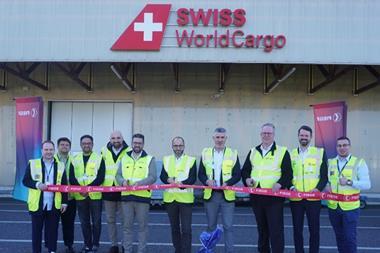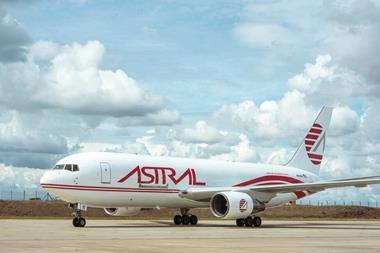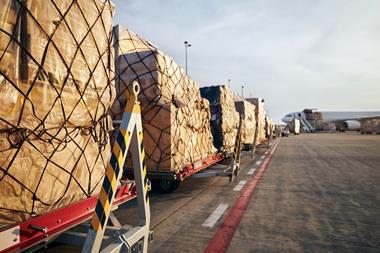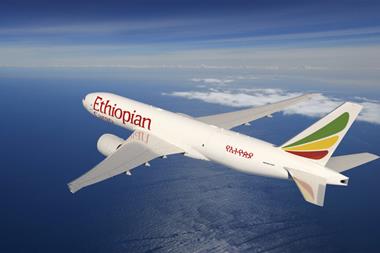Like other freighter operators, Amerijet is spoilt for choice what to do with its planes at the moment.
“There are so many opportunities,” says chief executive Tim Strauss. “We scramble to take advantage of opportunities and at the same time build our system.”
In fact, the airline is turning down a lot of lucrative opportunities to operate charters.
“We probably get 20 calls a day, and we say no 20 times a day,” says Strauss wryly. “We try to build relationships on ACMI and CMI.”
Strauss, who joined Amerijet last summer from Air Canada, has put the airline on a rapid expansion course.
The fleet, which stood at nine B767 freighters at his arrival, is growing at a frantic pace. This spring the carrier wet-leased two A321 freighters from Titan Airways.
It’s a beautiful plane, fairly new by cargo standards. It’s very fuel-efficient,” says Strauss. He is also looking to bring in B757s, in addition to more 767 freighters. This will help grow the fleet faster, he says.
By the end of next year Amerijet aims to be operating 27 freighters, a quantum leap from the nine-strong 767F fleet last summer.
Of these, 19 will be in the Amerijet fleet, with the rest flown on a CMI basis for DHL. That deal kicked off last November and has since brought five freighters into Amerijet’s operations.
The agreement gives the cargo airline the opportunity to use the planes outside operating windows for the integrator, but it has resisted the temptation so far in order to ensure that the CMI activity runs smoothly, as Strauss is bent on developing the company’s CMI and ACMI business.
“We may be the only one (freighter airline) that’s running a scheduled system. Everybody is doing CMI or ACMI,” he quips.
The company has essentially been a scheduled operator serving the Caribbean and parts of Central America. Strauss has no intention of abandoning that business, but he wants to change the mix of work. He aims for a 75:25 split in favour of contract flying four years down the road.
Outside its American theatre of operations Amerijet flies one or two times a week across the Atlantic to Brussels.
It obtained its extended range twin-engine operations approval last March, days before the outbreak of the pandemic.
The Brussels service has been going strong, thanks largely to pharmaceutical traffic.
Back in 2017 the airline became the first US all-cargo operator to obtain CEIV accreditation, which it renewed last summer.
This has helped gain some vaccine carrying contracts with the United Nations, such as moving vaccines out of India.
As Amerijet has moved medical cargo to Caribbean islands and is the only airline on the block in some locations, Strauss expects to be moving some vaccine traffic to the islands when this push gets under way.
Originally the biggest reason for the CEIV badge was Amerijet’s presence in Puerto Rico, a regional pharma powerhouse.
“It’s a 45-second drive from the aircraft to the cooler there,” says Strauss. “Puerto Rico is our number one destination. We have five flights a day there.”
Besides pharmaceuticals, he is also looking to build up the airline’s e-commerce capabilities.
“We should pick three or four destinations in the Caribbean and build an end-to-end system and own it all the way through,” he says. “It’s an opportunity that’s on the radar. You really want that e-commerce top-off.”
He adds that Amerijet could leverage its forwarding arm, which has several branches across the carrier’s network.
It was built to serve the cruise ships, bringing in spare parts and supplies.
That project joins a line of undertakings to ramp up the company.
It has been working on overhauling its IT infrastructure built around a legacy system that was developed in the early 1990s.
“It worked for its purpose but it doesn’t play well in a modern world,” comments Strauss.
He expects the migration to the new SmartCargo platform to be completed by July or August.
In addition, the company is getting a new accounting system. A new software module for crew scheduling was installed this spring.
Amerijet is also strengthening its sales muscle. In February it appointed Eric Wilson as chief commercial officer, who moved over from Delta, where he had been managing director of global cargo sales.










